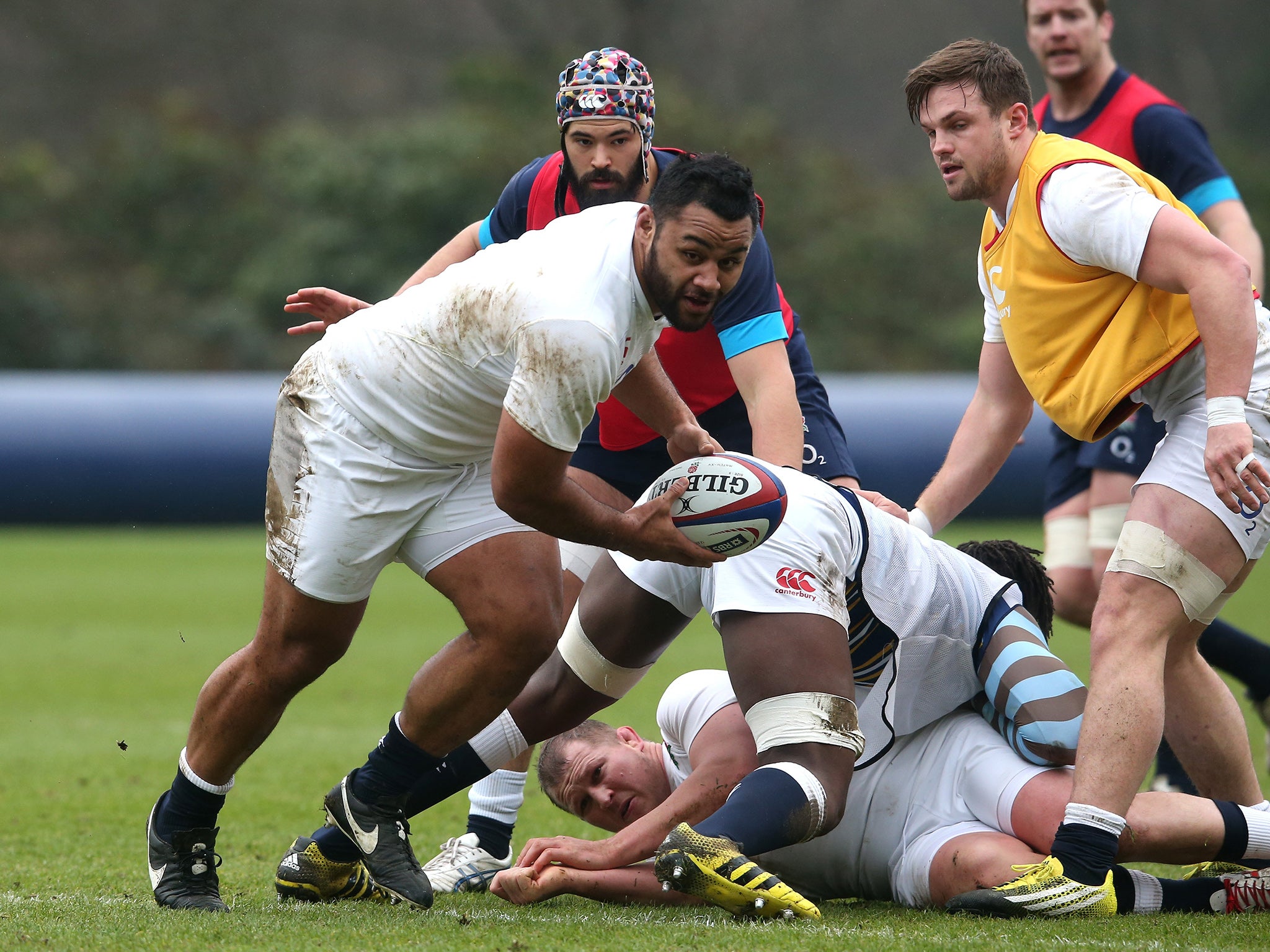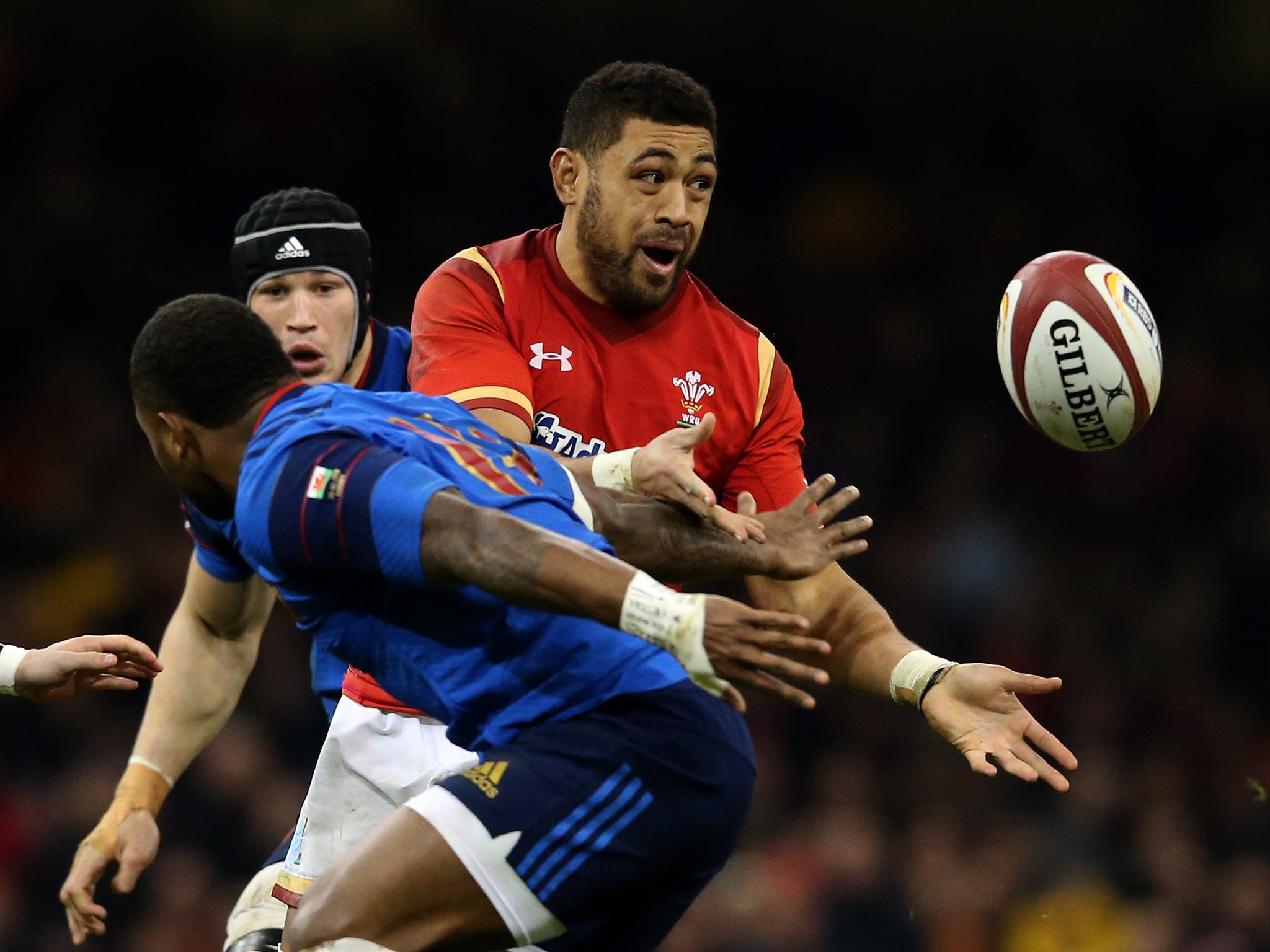England vs Wales: Six Nations up for grabs as ‘cousins’ set for titanic turf war
No 8 rivals England’s Vunipola and Faletau of Wales could hold destiny of the title in their hands

Your support helps us to tell the story
From reproductive rights to climate change to Big Tech, The Independent is on the ground when the story is developing. Whether it's investigating the financials of Elon Musk's pro-Trump PAC or producing our latest documentary, 'The A Word', which shines a light on the American women fighting for reproductive rights, we know how important it is to parse out the facts from the messaging.
At such a critical moment in US history, we need reporters on the ground. Your donation allows us to keep sending journalists to speak to both sides of the story.
The Independent is trusted by Americans across the entire political spectrum. And unlike many other quality news outlets, we choose not to lock Americans out of our reporting and analysis with paywalls. We believe quality journalism should be available to everyone, paid for by those who can afford it.
Your support makes all the difference.Any rugby rivalry sufficiently intense to generate the gratuitous violence that scarred the England-Wales game at Twickenham in 1980 – not to mention the 1987 bloodbath in Cardiff, which might have been refereed by Quentin Tarantino – has the potential to boil over, even in an age of union sanitisation. It just boils in a different way, as Billy Vunipola and Taulupe Faletau are likely to demonstrate when the Six Nations title effectively goes up for grabs this afternoon.
Frequently talked of as Tongan “cousins” – the description is inaccurate, strictly speaking; in the eyes of Billy and brother Mako, also in the England squad, Faletau was more of an “adopted sibling” – the two No 8s have the winning and losing of this championship in their outsized South Seas mitts. It may be the penultimate round rather than the final push, but no one seriously doubts that the victors will go on to seal the deal.
It is perhaps the most eagerly awaited individual contest in recent Six Nations history. Faletau has been a class act for some years now; Vunipola, fitter than he once was, is just beginning to bring the best of himself to the international arena. Faletau has clever footwork, an impressive degree of athleticism, a level of instinctive game understanding bordering on the complete and a work rate that would put the average Trojan to shame; Vunipola is a piece of heavy farm machinery in human form. We are talking about a turf war, fought out on some of the most expensively laid turf in Greater London.
There will be 28 other players on view, some of them extremely influential. The goal-kicking contest between Owen Farrell of England and Dan Biggar of Wales promises to be of the highest quality – it will be surprising if either man misses more than once – and after the fierce exchange of verbal grapeshot across the River Severn on the subject of the scrum, fun and games among the props and hookers is all but guaranteed.

Throw in the aerial threat posed by Wales, who have the gung-ho brilliance of Biggar and Liam Williams in their high-ball armoury, as well as two unusually tall wings in Alex Cuthbert and George North, and it is no surprise that England have been working overtime on their defensive set-up. They know there is more to the Red Dragon attacking game than Jamie Roberts and his full-frontal sorties down the inside centre channel.
Yet the hosts also know that if Vunipola is anywhere near as effective here as he was against Scotland and Ireland, when he won man-of-the-match awards by the kind of distance his family travelled when they first headed for Europe in the 1990s, they have the capacity to secure only their second Triple Crown since the World Cup-winning year of 2003, and move to within striking distance of a Grand Slam.
“Billy can create havoc with his explosiveness,” said Paul Gustard, the red-rose defence strategist, during his eve-of-match ruminations. “He also has some sleight of hand and his footwork is improving. Any coach would be foolhardy not to exploit what he offers to the full, although there is the possibility that we’ll use him a little differently on this occasion.”
Eddie nailed it: Wales are illegal in their set-up. Ours has been the dominant scrum
That last comment was Gustard’s way of confronting the idea that for all his gifts – because of all his gifts – Vunipola has become too important to England; that his influence, particularly in attack, has become disproportionate. There is a feeling in Wales that if they can stop the No 8 at source, there will be no alternative threats.
The rumblings over the set- piece and all the subterfuge and duplicity surrounding it continued, 24 hours after Robin McBryde, the visiting forwards coach, identified the England loose-head prop Joe Marler as a dodgy scrummager and Eddie Jones, the red-rose boss, went one further by raising concerns over the legality of the entire Welsh approach to engagement at close quarters. As a result, the pressure is on Craig Joubert, the much-maligned South African official, to deliver accurate judgements in a swirl of accusation and counter-accusation – hardly the ideal situation for a referee making his first Twickenham appearance since sprinting from the field in panic after messing up the Australia-Scotland quarter-final at last year’s World Cup.
“I think Eddie nailed it: our feeling is that Wales are illegal in their set-up,” Gustard said, bluntly. “As for Joe, we have no concerns at all. It’s pretty obvious that ours has been the dominant scrum in the Championship. That much is fact.”
No love lost: Classic Twickenham encounters
Mar 2002 - Six Nations
England 50-10 Wales
In a tournament which acted as one of the first markers laid down by an England team that would win the 2003 World Cup, 22-year-old Jonny Wilkinson dismantled the Welsh, scoring 30 of England’s points and having a hand in everything.
February 2012 - Six Nations
England 12-19 Wales
In a tight encounter Scott Williams brilliantly stripped Courtney Lawes of the ball before an excellent grubber kick which he collected to score one of the great individual tries in Six Nations history. England thought they had scored a try after time expired but the TMO ruled the ball had not been grounded. Wales went on to win the grand slam.
September 2015 - World Cup
England 25-28 Wales
Despite being decimated by injuries, Wales all but ended England’s campaign. An incredibly dogged performance from the Welsh was overshadowed by woeful decision-making by Chris Robshaw who chose to go for a try at the end rather than kick a penalty and accept a draw.
by Sean Coppack
It may well be that England prevail at the set-piece – that the proven experience of Dylan Hartley and Dan Cole counts for more than the youthful swagger of Rob Evans and Samson Lee. But Faletau is at his most masterly when charged with giving Wales some go-forward from a scrum going backwards, and even if Joubert comes down on the side of the hosts, they cannot count on a supply of points from line-out drives near the Welsh line.
Gustard could not quite bring himself to admit it, but the visitors have the best maul defence in the game. Alun Wyn Jones, a world-class lock to the tips of his fingers, understands more about timing and body position and weight distribution and entry angle than any second-row forward currently playing at Test level, and with the likes of Bradley Davies in close cahoots, he can keep his line intact for ever and a day.
Some rivals, England foremost amongst them, feel Wales sail as close to the wind in this department as they do at the scrum. There again, there are those who believe that the spherical centre Manu Tuilagi, back for the first time in 20 months, is on very thin legal ice when it comes to his big-hit tackling. All things considered, the stage is set for after-match recriminations of the most furious kind.
Not that the England hierarchy see Tuilagi as any kind of risk. Rather, they are beside themselves with glee at having him back. “Manu tries to get his arms around people in the tackle but, because he is so squat and powerful, there are times when an opponent goes back before he can do it,” Gustard said, by way of a pre-emptive strike.
Should the human bowling ball roll off the bench and leave a Welshman in a shallow grave with a mistimed hit, it will be fascinating to see if the disciplinary classes agree.
Join our commenting forum
Join thought-provoking conversations, follow other Independent readers and see their replies
Comments